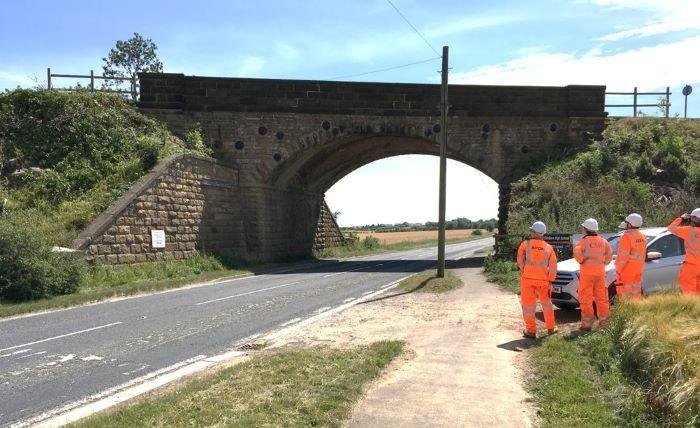
Submitted by Dr Fiorella Del... on Tue, 09/04/2024 - 12:56
In a recent CSIC research talk, titled “Distributed monitoring and structural interpretation of ageing masonry arch railway bridges”, Dr Sam Cocking, (Research Associate at CSIC), highlighted the urgent need for maintaining and optimising the use of existing railway infrastructure, with a particular focus on masonry arch bridges. These structures have significant architectural and historical value, and also represent a notable carbon investment. Therefore, preserving them is critical in light of the need to reduce CO2 emissions.
During the presentation, Dr Cocking emphasised the crucial role of sensing technologies in providing essential insights to structural engineers, who are working to prolong the lifespan of bridges. The presentation highlighted innovative uses of Fibre-Bragg gratings (FBGs) in monitoring masonry railway bridges in the UK. FBGs permit a wide range of dynamic, strain-based sensing, that can capture various metrics of the structural response of bridges. Furthermore, by integrating FBGs with other novel technologies such as Acoustic Emission, Videogrammetry, and advanced analysis of Laser Scan data, engineers and researchers are now able to comprehensively study these bridge responses, including the emergence and progression of cracking damage - a primary concern for asset engineers.
Skewed masonry arch bridges, in particular, have historically not been well understood. For a case study skewed arch bridge, the presentation showcased typical bridge responses under vehicle loading, highlighting that these are very consistent for common train types and have remained so through several years of monitoring. This is an indication of minimal bridge deterioration over this period. Separately, by examining the distributed nature of the bridge’s structural behaviour, alongside factors such as train speed, temperature variation, and historic deformation, a fuller view of load paths and their sensitivity to external variables was quantified.
This study underscores the effectiveness of FBG monitoring in quantifying and tracking the complex behaviour of masonry bridges. Such monitoring is essential until necessary reinforcement or renewal measures can be undertaken. As ageing infrastructure becomes a growing challenge, such advancements in monitoring technologies offer hope in securing their durability and resilience in the face of changing environmental demands, while preserving our cultural and industrial heritage for future generations.
Selected further reading:
- Cocking, S. (2021), Dynamic distributed monitoring of masonry railway bridges. PhD Thesis, University of Cambridge. DOI: 10.17863/CAM.78008.
- Cocking, S., Alexakis, H., and DeJong, M.J. (2021), Distributed Dynamic Fibre-Optic Strain Monitoring of the Behaviour of a Skewed Masonry Arch Railway Bridge, Journal of Civil Structural Health Monitoring, 11(4), 989–1012. DOI: 10.1007/s13349-021-00493-w.
- Cocking, S.H., Ye, C., and DeJong, M.J., Damage Assessment of a Railway Bridge Using Fibre Optic Sensing and LiDAR Data. In: Proceedings of ICSIC 2019, the International Conference on Smart Infrastructure and Construction, Cambridge, UK, 2019. DOI: 10.1680/icsic.64669.701.
